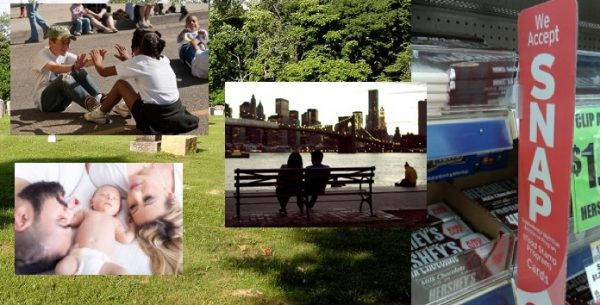 Here at TSP headquarters, we’re settling into the semester and the cool fall weather. This week we’ve got social science research on race and social assistance in the United States, how the internet changed the dating game, and the lives saved and lost by incarceration.
Here at TSP headquarters, we’re settling into the semester and the cool fall weather. This week we’ve got social science research on race and social assistance in the United States, how the internet changed the dating game, and the lives saved and lost by incarceration.
There’s Research on That!:
“Immigration, Welfare, and the Role of Race,” by Neeraj Rajasekar. In light of Trump advisor Stephen Miller’s plans to bar documented immigrants from citizenship if they use social assistance, we rounded up social science research on race and social assistance in the United States.
“Not so Natural Disasters, ” by Erik Kojola. Hurricanes – so called natural disasters – are not simply the result of the weather but become “disasters” because of how society shapes people’s risks and how people prepare, adapt, and respond.
“Policing the Behavior of Minority Girls,” by Amber Joy Powell. Serena Williams’ recent experiences made us think about how discipling women of color’s behavior starts from a young age.
Discoveries:
“Counting Incarceration’s Lives, Lost and Saved,” by Ryan Larson. New research in the Journal of Health and Social Behavior finds that incarceration saves lives through decreasing the homicide rate, but also loses lives through increasing the infant mortality rate.
Clippings:
“How the Internet Changed the Dating Game,” by Allison Nobles. The Economist examines social science research about how the internet has changed dating.
From Our Partners:
Sociological Images:
“Stories, Storms, and Simulations,” by Evan Stewart.
Council on Contemporary Families:
“Parenting and the Gender Trap,” by Emily Kane.
And a Few from the Community Pages:
- Cyborgology reflects on what defines an internet celebrity.
- Dispatches with a Dean highlights City Lab‘s article about bridging the rural-urban divide.

Comments